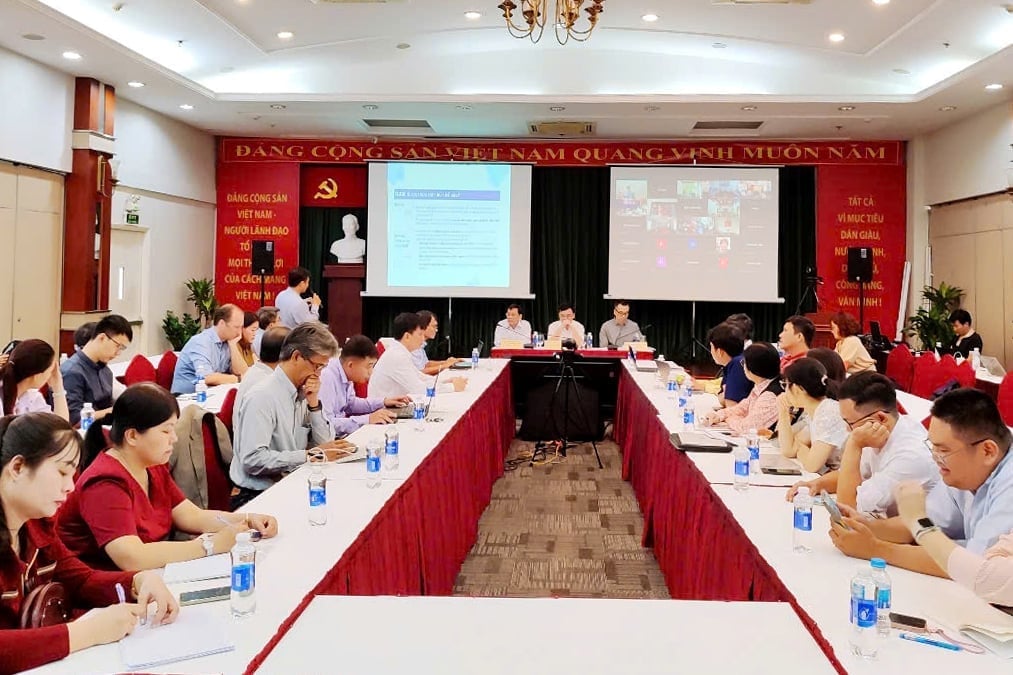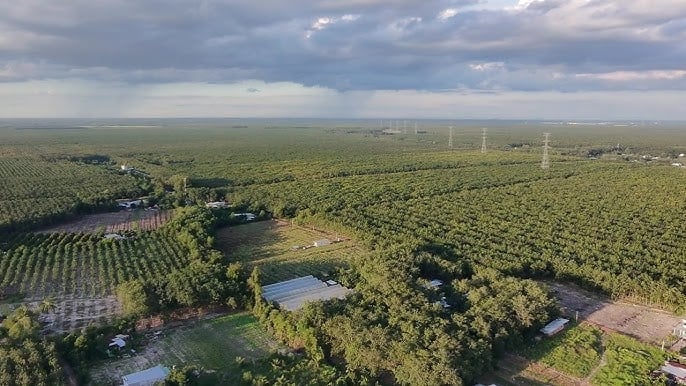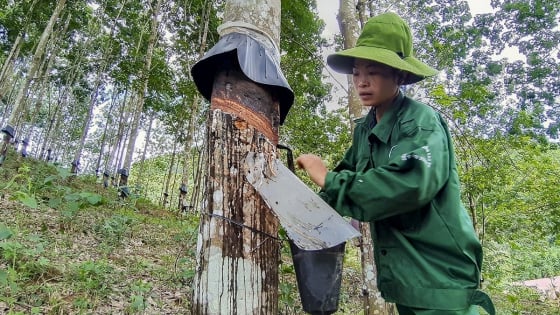(VAN) Vietnam faces pressure from the EUDR regulation to ensure supply chain transparency-especially among smallholders that lack data and legal documentation.
Smallholders – The weak link in Vietnam’s rubber supply chain
Starting from January 1, 2026, all rubber and coffee products exported to the EU must comply with the EU Deforestation Regulation (EUDR), which requires traceability and proof that the supply chain is not linked to deforestation. With raw materials primarily sourced from smallholder farmers, Vietnam’s rubber industry is under significant pressure to increase transparency in production data.
According to the Department of Crop Production and Plant Protection, although Vietnam is classified as a “low-risk” country, every shipment must still demonstrate legal compliance through geolocation data and complete legal documentation. The EU allows no exceptions in enforcing the EUDR for any country.

Experts discuss at the workshop “Smallholder Rubber Supply Chain: Current Status and Capacity to Comply with the EU Deforestation Regulation.” Photo: Forest Trends.
To support businesses and farmers in adapting, the Ministry of Agriculture and Environment has partnered with international organizations such as GIZ, IDH, and Forest Trends to develop a digital plantation database. Each batch of raw material can be traced via a QR code linked to a specific plot of land. Some key provinces have piloted training programs for farmers to use production logbook apps, even in offline environments.
However, implementation still faces many challenges. Smallholder rubber, accounting for 54% of planted area and about 63% of output, is currently the weakest link. Most rubber-growing households in Vietnam lack production records and complete land ownership documents, while buying and selling often occur through informal channels. Raw materials from these households are frequently mixed, with no contracts, invoices, or identification systems in place.
Middlemen and agents often operate without business registration or data storage, making the raw material “untraceable” from the very first step.
The Department of Crop Production and Plant Protection (MAE) is finalizing technical guidelines and developing financial mechanisms to maintain the plantation data system and enhance cooperation with the EU. Local authorities are required to update data regularly and assist businesses and households in completing their documentation before the regulation takes effect.

Smallholder producers currently account for a large share of Vietnam’s rubber industry structure. Photo: Nguyen Phuong.
Enterprises embrace digital transformation to retain EU market share
The EUDR is not just a technical requirement; it is also a test of supply chain governance capacity and the level of coordination among stakeholders in the industry.
However, many small and medium-sized enterprises (SMEs) are still unfamiliar with the new regulation, lack clear guidance, and have received little targeted support. The links between farmers, traders, and processing factories remain weak, while local governments in many areas have yet to take proactive steps.
The Vietnam Rubber Association (VRA) coordinates the development of guidance documents, organizes training workshops, and establishes knowledge-sharing platforms with international partners. The association emphasizes the importance of developing a user-friendly national traceability platform that meets EUDR standards and helps companies prepare DDS (Due Diligence System) reports. Alongside this, VRA advocates for policies supporting legal land documentation, transaction software, and incentives for pioneering models.
VRA has also proposed that the government consider a 2–3-year transition period specifically for smallholders to allow time for adaptation and utilization of EU technical assistance programs. Businesses are encouraged to move away from a “wait-and-see” mindset and take proactive steps if they wish to retain their market presence in Europe.
According to expert Nguyen Vinh Quang of Forest Trends, most current transactions in the smallholder rubber supply chain do not meet EUDR standards. Although smallholders account for 88% of harvested area and over 60% of production, their operations are still largely informal and lack data storage. A survey by Forest Trends found that most of the 260,000 rubber-growing households do not record transactions or maintain production records.
At the commune level, there are typically 10–20 collection points, but most are unregistered and not digitally tracked. Agents both purchase directly from farmers and aggregate rubber from other agents, leading to a breakdown in supply chain traceability. Even processing plants often rely solely on trader-provided lists of farmers without verification methods.

VRA proposes that the government consider a transition period to allow smallholders time to adapt and benefit from EU technical support programs. Photo: BT.
According to Dr. To Xuan Phuc, Director of Forest Trends, private enterprises play a key role in building sustainable smallholder supply chains. Supporting farmers with land legalization, digital recordkeeping, and input–output control not only helps businesses meet market demands but also builds stable raw material zones and enhances competitiveness.
In his view, supporting smallholders in meeting supply chain transparency requirements should be considered a fundamental component of long-term business strategies.
Agriculture News | Agri Products Price



